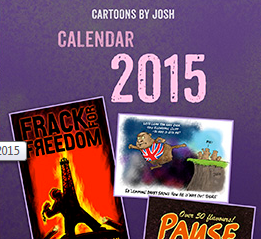Get it while it’s hot. Link below the break. Thank you, secret Santa. 🙂

IPCC AR5: Synthesis Report Pre-First Order Draft available here
Posted: December 8, 2013 by tallbloke in Accountability, Analysis, climate, FOI, People powerComments




| oldbrew on Blow for climate worriers as b… | |
| Phoenix44 on Blow for climate worriers as b… | |
| stpaulchuck on Battle of the skies as airline… | |
| oldbrew on Blow for climate worriers as b… | |
| coecharlesdavid on Suggestions-50 | |
| oldbrew on Suggestions-50 | |
| oldbrew on Battle of the skies as airline… | |
| Jaime Jessop on Battle of the skies as airline… | |
| energywise on Battle of the skies as airline… | |
| saighdear on UK wind power constraint payme… | |
| liardetg on UK wind power constraint payme… | |
| saighdear on Battle of the skies as airline… | |
| oldbrew on Is Net Zero a poisoned chalice… | |
| energywise on Historic aurora show | |
| oldbrew on Historic aurora show |

Heh, time for sleep.
You are a very naughty boy, Tallbloke, going and distributing a precious internal report they said not to distribute amongst us base-born mortals.
/choke
Many thank.
But, WGII Co-chair, Chris Field gave the game away a few days ago while he was down-under. As Alex Cull’s transcript of an interview by ABC’s Fran Kelly records:
Field also does his version of “the science is settled” song and dance, along with his analysis of “the problem”:
In light of the above, YMMV, but I was not at all surprised by the following random word-counts in this leaked draft:
Environment: 34
Political: 17
Uncertain*: 69
Risk: 216
You are a scholar and a gentleman.
Thanks and best wishes,
William
Thanks Hilary. I said soon after Stephen Schneider’s untimely death that his right hand man at Stanford Chris Field was the man to watch.
He sounds more like a business advisor than a biologist in that transcript.
All the uncertainties and nonsense won’t save us from being hit with a massive bill for essentially nothing.
Regarding risk and uncertainty, as I said on Tamsin’s blog:
Communicating risk and uncertainty in climate science isn’t such a big problem if it is approached with honesty and humility.
“We don’t know why our models are so far out of step with climate data, we might have made a mistake with theory, or parameterisations, or data inhomogeneity, or missing variables. So we can’t say much about risk, since currently the ‘projections’ we make contain so much uncertainty.”
Bad Tallbloke. “This paper is pre-decisional, strictly confidential and is not for citation, quotation or distribution. ”
The risk of shooting multiple holes in the world economy below the (political and economic) waterline is by far the greatest.
Thanks TB !
The prologue reads a bit like stuff from the Tyndall Centre – Post Normal Science or some such – actually advocated PNS as a means of furthering institutional and personal advancement – science not to seek truth but to serve whatever purpose you have in mind.
BTW is there something about anthropogenic CO2 that makes it different from ‘natural’ CO2? Several times the origin of the CO2 is mentioned as if it were different in some respect! Or is this just part of the hype?
I wanted to see how they deal with the stoppage of warming. It is discussed only on page 21.
From the pre First Order Draft of AR5
This seems to be the only discussion of the stoppage (hiatus is the authors’ term) From page 21:
“The rate of warming of the observed global-mean surface temperature has been smaller over the past 15 years (1998-2012) than over the past 30 to 60 years and is estimated to be around one-third to one-half of the trend over the period 1951–2012. Nevertheless, the decade of the 2000s has been the warmest in the instrumental record.
The radiative forcing of the climate system has been increasing to a lesser rate over the period 1998-2011 compared to 1984 to 1998 or 1951-2011, due to a negative forcing trend from volcanic eruptions and the downward phase of the solar cycle over 2000-2009. However, there is low confidence in quantifying the role of forcing trend in causing the surface-warming hiatus, because of uncertainty in the magnitude of the volcanic forcing trend and low confidence in the forcing trend due to tropospheric aerosol.
For the period 1998–2012, 111 of the 114 climate-model simulations show a surface-warming trend larger than the observations . There is medium confidence that this difference between models and observations is to a substantial degree caused by unpredictable internal climate variability. Variability sometimes enhances and sometimes counteracts the long-term externally forced warming trend. Internal variability thus diminishes the relevance of short trends for long-term climate change. There are also possible contributions from inadequacies in the solar, volcanic, and aerosol forcings used by the models and, in some models, from too strong a response to increasing greenhouse gases and other anthropogenic factors.
In summary, the observed recent surface-warming hiatus is attributable in roughly equal measure to a cooling contribution from internal variability and a reduced trend in external forcing (expert judgment, medium confidence). ”
Lots of medium and low confidences, no admission that warming has ceased.
So the list of IPCC excuses includes: ‘due to a negative forcing trend from volcanic eruptions and the downward phase of the solar cycle over 2000-2009’ [etc].
Therefore by the IPCC’s own logic at least some of the warming must have been due to an ‘upward phase of the solar cycle.’ All they have to do is tell us how much and how they arrived at their figure. I’m not holding my breath.
Brian H “Bad Tallbloke. “This paper is pre-decisional, strictly confidential and is not for citation, quotation or distribution. ””
Oops. Didn’t see that. Ah well, too late now.
Brian H says:
December 9, 2013 at 3:51 pm
——————————————
I’m sure Tallbloke is ok to distribute. “This paper is pre-decisional, strictly confidential and is not for citation, quotation or distribution. ” must have been a typo. After all the IPCC had promised an open and transparent process with AR5. The IPCC wouldn’t lie to us….
I note that in section 2.4 it declares
“All of the assessments of confidence are based on the opinions of the expert authors, informed by the best available information. ”
So that is all right then ?
Mornin’ Ian.
So that is all right then ?
Well, ummm, ….no.
But at least they’ve admitted they’re guessing rather than using data, methodology and reproducible results.
Y’know, that scientific method thingy.
Respect America for Mother Nature.
Philadelphia International Airport received more snow (8.6 inches) from a single storm this past Sunday than it did all of last winter, when 8.3 inches fell.
Mother nature pulled out all the stops with heavy snow in a narrow zone centered near the Mason-Dixon Line Sunday.
The council of Nicea took many years to finalize the version of Christianity we started with. The IPCC is the equivalent. In effect world leaders allowed extreme environmentalism/climate kookiness to be our state religion and the IPCC is the council to rationalize the dogma of the new state religion.
The data from this new mission, planned to last four years, will be used to study the mysteries of Earth’s magnetic field, its interactions with the solar wind and relation to global change.
http://www.esa.int/Our_Activities/Operations/End_of_the_beginning_for_Swarm_trio
New paper on the Tropopause in planetary atmospheres being consistently at 0.1 bar deserves some attention.
http://www.nature.com/ngeo/journal/vaop/ncurrent/full/ngeo2020.html
Now factor in distance from the Sun, with the depth/pressure of the atmosphere below 0.1 bar differing on these planets but with the temperature declining at a consistent lapse rate, and we have a new theory of surface temperatures.
Paul W: Welcome. We have such a theory put forward by Nikolov and Zeller on this site already. Also have some new supporting theroetical work on centrifuges and empirical test of lapse rates of equilibrium fluids in the works. Awaiting review from my co-mod.
Jo Nova & Geoff Sherrington have a nice “Translation” of some of the AR5 statements here.
http://joannenova.com.au/2013/12/ipcc-spin-translated-between-the-lines-in-their-leaked-synopsis-97-of-models-fail/
The AR5 draft also provides some future projections for the climate.
See 2.5 Projected changes in the climate system pages 30ff
Here are the Headlines (Expect to see these in the media soon)
CO2 will drive warming for centuries to come
Surface air temperature will range up to 4.8C by 2100
More hot extremes and heat waves
Less rain in dry areas and more rain in wet regions
Stronger and wetter cyclones
Nearly ice-free Arctic by mid century
NH spring snow cover reduced up to 25%
Near surface permafrost reduced up to 81%
Global glacier volume by 2100 reduced up to 85%
Global mean sea level rises up to 1 m by 2100
Ocean surface ph 0.3 more acid by 2100
Should we be concerned?
Re: 0.1bar he semiquavers, why is that plot _not_ for normalised radiation?
Rog, thought I did comment.
Nothing to add but novel claims mean I want to see detailed experimental data, how expected detail problems were overcome.
My problem with reading anything coming out of the IPCC is that I learned in junior high school English class that this type of writing falls in the category of Gobbledygook, subcategory Propaganda, and is therefore best left unread. However, since the pronouncements of the IPCC are widely recognized as authoritative publications of great importance to the public (which is paying many billions of dollars to combat global warming), I finally found a translation of this material that makes it crystal clear with a fast read (h/t A C Osborn)! I highly recommend this translation to Dr. Nir Shaviv, who is still struggling to come up with his own translation of the first AR5 releases weeks ago:
http://joannenova.com.au/2013/12/ipcc-spin-translated-between-the-lines-in-their-leaked-synopsis-97-of-models-fail/
Nir Shaviv’s first impressions:
http://www.sciencebits.com/AR5-FirstImpressions
According to AR5, even if we cut down on fossil fuels, future changes are irreversible.
How screwed are we? Let us count the ways:
From 2.7 Long-term, effectively irreversible and abrupt changes pages 34ff
Headlines
Global temperature stays above 20th century average for centuries
Ocean acidification will affect marine ecosystems for centuries
Arctic Ocean will be seasonally ice-free
Near-complete loss of the Greenland ice sheet over a millennium or more, causing a sea level rise of up to 7 m
Abrupt and irreversible regional-scale change in the Amazonian and boreal forests
Thawing permafrost releases carbon stored up for centuries
Increased methane emissions from oceanic clathrates.
That is some crystal ball they have got going.
Tallbloke can already see the effects of blockade of the stratosphere. The air from the south reach farther over the the Arctic Circle. Anomalies will deepen when cosmic rays will increase. The weather is now hardly predictable.
Useful link.

Thanks Rog, just had a quick scan through and contextually the report could best be described as a load of agenda driven bollocks.
I think all the lead authors should be made to read “The Black Swan: The Impact of the Highly Improbable” by the applied epistemologist Nassim Nicholas Taleb. My gut feel, looking at all evidence is that a very cold black swan event is on it’s way – Interestingly none of this bunch of econuts seem to consider this potentially life threatening risk in their recommendations to politicians.
Be interesting to see what happens to them if another mini-ice age should come along to bite them in the arse! I just hope I’m wrong.
P.S. Currently looking very Christmasy for our antipodean cousins in Oz…
Looks like this study just missed being included in the IPCC report 😉
‘Kullman says that “the emergence during the past two millennia of at least two short-term tree line and thermal excursions to higher than present levels (i.e. early 21st century) indicates that the current performance of the ecological and climatic systems is well within the envelope of the natural variability of the late Holocene (cf. Karlen, 2008; Akasofu, 2010; Curry and Webster, 2011; Humlum et al., 2011; Kobashi et al., 2011; Ljungqvist et al., 2012).” ‘
‘And to make this point perfectly clear, Kullman repeats that “the pine tree line (and summer temperature) was consistently higher than present … during the Roman and Medieval periods, c. 1900 and 1000 calendar years BP.” ‘
http://www.co2science.org/articles/V16/N50/EDIT.php
The author also says “mega-fossil and tree-ring studies in the northernmost part of the Scandes and adjacent regions display broadly the same features”
Cyprus is preparing to frost
The Cypriot authorities are preparing the citizens of his country to the typical winter weather conditions , which will last at least until Friday. The cyclone , which brings blizzards in Turkey, dragged the mass of cold Arctic air over the eastern Mediterranean . From Wednesday, the maximum temperature in Cyprus fluctuates within 4-7 degrees C , and at night drops below zero . Snow and rain falls , among others, Nicosia – capital of the country – as well as in mountainous areas , which happens very rarely . Due to adverse weather conditions and local fire and rescue services , as well as civil defense offices and police were put on high alert . They help the victims of the approaching cold weather
[…] recently leaked pre-First Order Draft (FOD) of the “IPCC Fifth Assessment Synthesis Report” strongly […]